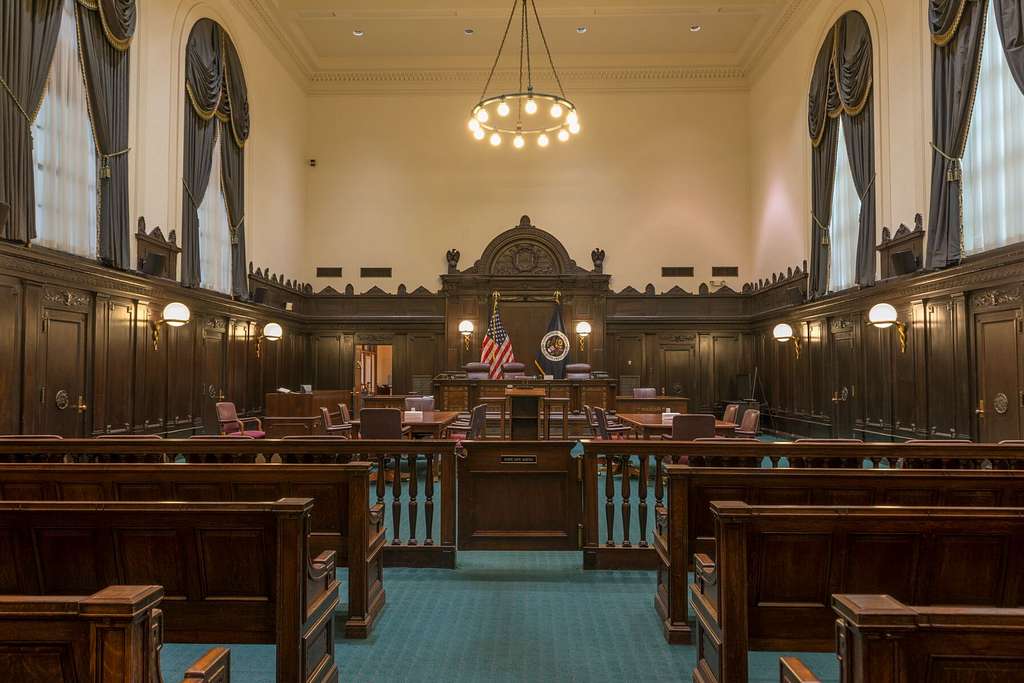
Henry Green is a student at Harvard Law School.
In today’s News and Commentary, some circuits show less deference to the Board after Loper Bright; the Third Circuit affirms a return to the Meyers Industries test for concerted activity; and the Senate parliamentarian excludes measures aimed at the federal workforce from the One Big Beautiful Bill.
A Bloomberg article suggests that Board interpretations of labor law are receiving less deference in federal appellate courts after Loper Bright. The article notes that although there is a pre-Chevron basis for deference to the Board, cases that went against the NLRB at the Fourth, Fifth, Sixth, and Tenth circuits didn’t mention that precedent, “instead saying they don’t yield to the board’s view of the law.” In addition to the four circuits cited in the article, Bloomberg previously reported a Seventh Circuit oral argument where Judge Easterbrook appeared to question the relevance of NLRB caselaw after Loper Bright. However, not all circuits are giving less weight to the Board: the article notes that the Third Circuit called for continued deference, saying that Loper Bright itself acknowledges that the Supreme Court has deferred to the Board separately from applying Chevron. The article does not discuss cases before the D.C., Second, and Ninth Circuits that Jason Vasquez said indicated continued deference to the Board in an OnLabor post last month.
A Third Circuit case affirmed a return to the broader Meyers Industries definition of concerted activity, NLRB Edge and Bloomberg report. The case, Miller Plastic Products, involved a worker who stood up alone at a company meeting to contest his employer’s COVID policies and was later fired. In 2023, the NLRB held that the worker was fired for protected concerted activity, since – though he stood up alone – he acted in the interest of the larger group of workers at the facility. As part of that ruling, the Board returned to the broader Meyers Industries (1986) standard for concerted activity, overturning Alstate Maintenance (2019). Though the Third Circuit upheld the return to Meyers Industries, it disagreed with the Board’s determination that the company fired the worker because of his protected activity. The Court remanded the case to the Board, saying it failed to adequately consider the company’s arguments about why the worker had been fired.
Politico reports that a measure to incentivize federal workers to accept at-will employment status has been excluded from the One Big Beautiful Bill by the Senate parliamentarian. The parliamentarian found that the proposal violates the Byrd Rule, which limits what can be included in a reconciliation bill. The Republican-led plan would have offered federal employees the option to lower their contributions to the federal pension plan (raising their take-home pay) if they accepted at-will employment status. Related provisions that were also struck from the bill would have charged federal worker unions for time spent engaging in representation activities while on the clock; given bonuses to federal employees who identified “unnecessary expenditures” within their agencies; and created a $350 filing fee to bring claims to the Merit Systems Protection Board. A provision imposing a 10 percent fee on dues deductions for federal workers was not excluded by the parliamentarian and remains in the bill.






Daily News & Commentary
Start your day with our roundup of the latest labor developments. See all
November 7
A challenge to a federal PLA requirement; a delayed hearing on collective bargaining; and the IRS announces relief from "no tax on tips" reporting requirements.
November 6
Starbucks workers authorize a strike; Sixth Circuit rejects Thryv remedies; OPEIU tries to intervene to defend the NLRB.
November 5
Denver Labor helps workers recover over $2.3 million in unpaid wages; the Eighth Circuit denies a request for an en ban hearing on Minnesota’s ban on captive audience meetings; and many top labor unions break from AFGE’s support for a Republican-backed government funding bill.
November 4
Second Circuit declines to revive musician’s defamation claims against former student; Trump administration adds new eligibility requirements for employers under the Public Service Loan Forgiveness program; major labor unions break with the AFGE's stance on the government shutdown.
November 3
Fifth Circuit rejects Thryv remedies, Third Circuit considers applying Ames to NJ statute, and some circuits relax McDonnell Douglas framework.
November 2
In today’s news and commentary, states tackle “stay-or-pay” contracts, a new preliminary injunction bars additional shutdown layoffs, and two federal judges order the Trump administration to fund SNAP. Earlier this year, NLRB acting general counsel William Cowen rescinded a 2024 NLRB memo targeting “stay-or-pay” contracts. Former General Counsel Jennifer Abruzzo had declared that these kinds […]